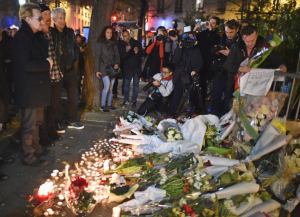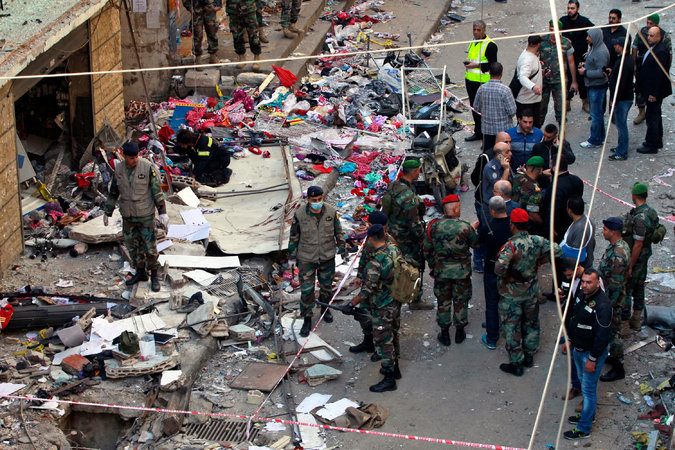Chances are very good that, like virtually everyone else, you found some way to express solidarity with and sympathy for the people of Paris after Islamic terrorists launched deadly attacks there on Friday, killing 129.
But chances are equally good that, like virtually everyone else, you did not do the same for the people of Beirut after Islamic terrorists launched deadly attacks there on Thursday, killing 40. And the New York Times wants to lay a guilt trip on you, and everyone else, for failing to do so.
Except that, no matter how well-intentioned, its article in yesterday’s edition – headlined “Beirut, Also the Site of Deadly Attacks, Feels Forgotten” – reeks of the fallacy of emotional, ethical, and/or political equivalency.
Here is a poignant excerpt.
____________________
The consecutive rampages, both claimed by the Islamic State, inspired feelings of shared, even global vulnerability — especially in Lebanon, where many expressed shock that such chaos had reached France, a country they regarded as far safer than their own.
But for some in Beirut, that solidarity was mixed with anguish over the fact that just one of the stricken cities — Paris — received a global outpouring of sympathy akin to the one lavished on the United States after the 9/11 attacks…
‘When my people died, no country bothered to light up its landmarks in the colors of their flag,’ Elie Fares, a Lebanese doctor, wrote on his blog.
_____________________
Of course, this disparate reaction stems from the fact that, not so long ago, terrorist attacks were as common in Beirut as they are in Baghdad today. By contrast, 9/11 was the first time the United States had been attacked since WWII; and Friday’s attacks were the most deadly in France since, well, WWII too.
This is why Westerners could be forgiven for allowing concern for victims of the attacks in Paris to overwhelm whatever concern they had for victims of the attacks in Beirut – assuming they even knew about the latter. To be fair, the Times alludes to this forgiveness. But one can’t help but liken its take to specious complaints about Obama issuing presidential statements on occasional mass murders (in cities like Charleston), but not on daily single murders (in others like Chicago).
Clearly, with all due respect to Blacks in the vanguard of civil rights protests in America today, Arab lives matter … all lives matter. But I suspect even the people of Beirut would be hard-pressed to remember when, if ever, they expressed solidarity with and sympathy for the people of Baghdad, Kabul, or any of far too many stricken cities in Africa after terrorists launched deadly attacks there.
 Incidentally, U2 headlined an A-list of entertainers who canceled performances over the weekend. Madonna was a notable exception. She insisted that she was not going to let terrorists stop her and her fans from having a good time.
Incidentally, U2 headlined an A-list of entertainers who canceled performances over the weekend. Madonna was a notable exception. She insisted that she was not going to let terrorists stop her and her fans from having a good time.
Except that Bono would surely inform Madonna that his cancelation had nothing to do with the terrorists. It was just a way of expressing solidarity with and sympathy for the people of Paris, and of holding a grand moment of silence for the dead. Perhaps it’s too much to expect this egocentric material girl to relate to all that. But, just as Paris will return to business as usual this week, U2 and others will return to the stage.
In any event, please forgive us for overlooking you, Beirut. And please know that, the Times notwithstanding, to some of us, you are far from forgotten.
Related commentaries:
Attacks on Paris…
